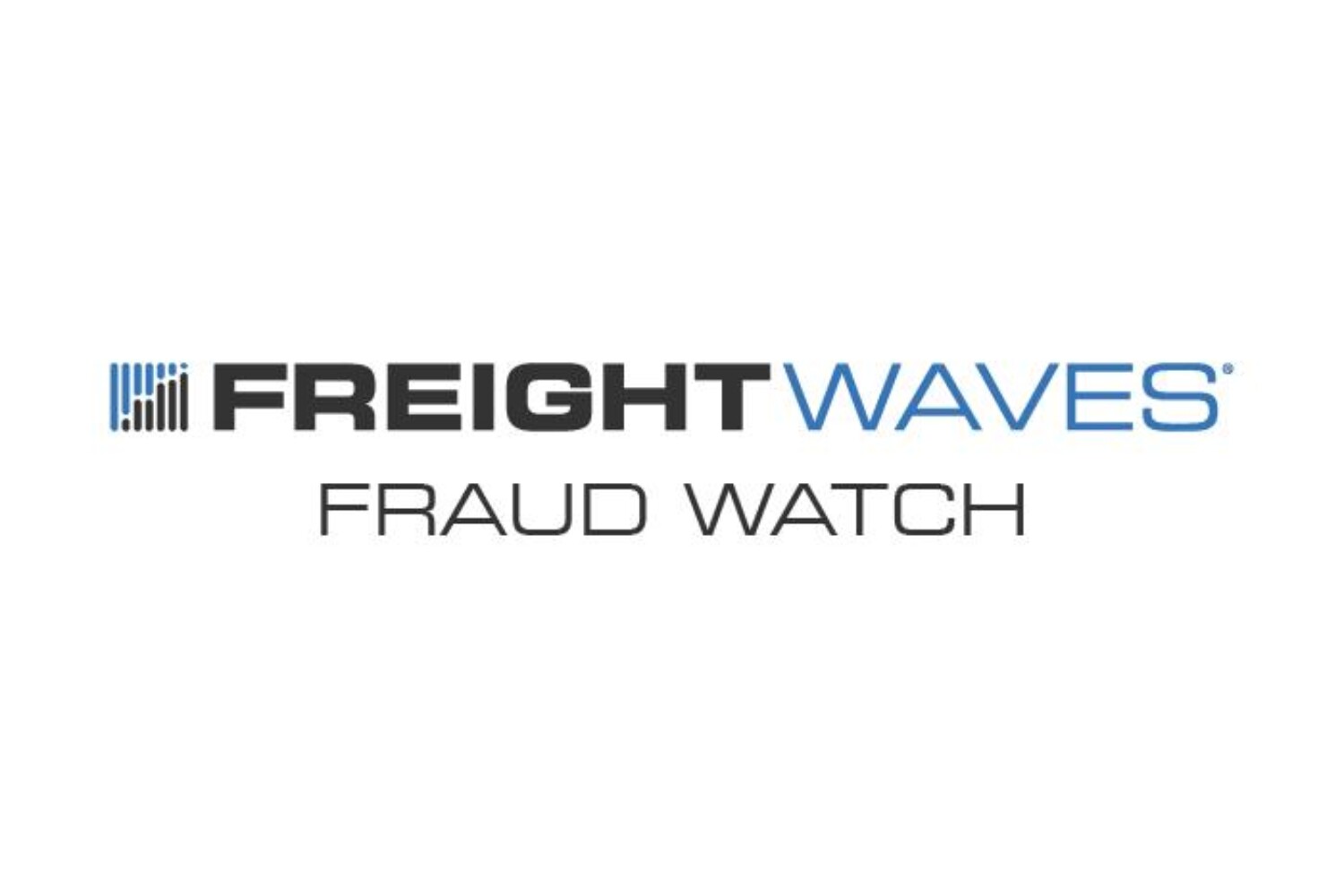Hackers use remote access tools to steal freight…
|
|
|
|
|
Descartes MyCarrierPortal delivers next gen carrier vetting & monitoring technology to stop fraud before it starts. Protect your freight, ensure compliance, and verify with confidence.
|
|
|
(Photo: Jim Allen / FreightWaves)
|
|
|
OOIDA asks the DOT for help
|
|
|
The Owner-Operator Independent Drivers Association (OOIDA) is calling for urgent federal intervention to safeguard small trucking carriers from escalating freight fraud and cargo theft, as detailed in a November 3 article from Land Line Media. The piece highlights how cargo theft has reached unprecedented levels, with the National Insurance Crime Bureau projecting a 22% increase in losses for 2025 compared to the prior year. This surge threatens the viability of owner-operators and small companies, where a single incident can lead to business collapse due to razor-thin margins.
In response to a U.S. Department of Transportation (DOT) request for information published in September 2025, OOIDA submitted comments on October 20, emphasizing the need for stronger protections in the supply chain. The DOT sought input on theft risks, best practices, and technologies to combat the issue. OOIDA ranked cargo theft as a "very serious" challenge (5 out of 5), noting its broader economic ripple effects. While the American Transportation Research Institute estimates annual industry losses at up to $6.6 billion, OOIDA argues that the true impact extends to higher consumer prices as shippers pass on costs from stolen goods.
Key contributing factors identified by OOIDA include heightened fraud risks, sophisticated technology used by criminals, and insufficient federal oversight. Small carriers, increasingly reliant on load boards for brokered loads, face significant vulnerabilities from practices like double-brokering—where fraudulent brokers reassign loads without permission—and carrier identity theft. These platforms have become breeding grounds for bad actors, with minimal accountability. OOIDA points out that large carriers can absorb such hits, but small operations often cannot recover, leading to widespread business failures among its members.
The association criticizes the current lack of effective measures against fraudulent brokers, which fosters an environment ripe for exploitation. To address this, OOIDA proposes several recommendations to the DOT. Foremost is establishing a centralized federal repository for reporting theft and fraud incidents, which would enhance communication among agencies, law enforcement, and stakeholders. This database should be well-resourced for timely responses and accurate tracking, unlike the existing National Consumer Complaint Database, which OOIDA deems ineffective due to historical inaction by the Federal Motor Carrier Safety Administration (FMCSA). Recent updates to the database offer hope, but more is needed.
Additionally, OOIDA urges advancing pending regulations on broker transparency, currently slated for a second notice of proposed rulemaking in May 2026. Other suggestions include expanding truck parking to reduce vulnerability during stops and tightening screening processes for new industry entrants to weed out potential fraudsters. Overall, the article underscores OOIDA’s push for systemic reforms to protect small carriers, emphasizing that without federal action, freight fraud will continue to undermine the trucking industry’s stability and the national economy.
|
|
|
Freight Fraud Video of the Week 🤩
|
|
|
Jon Canteras discusses freight fraud on this week’s Task Force Minute.
|
|
|
Descartes’ Danielle Spinelli & Carrier Assure CEO, Cassandra Gaines, highlight the growing importance of balancing safety and fraud prevention with efficiency during this carrier vetting webinar.
|
|
|
Hackers using remote access tools to steal freight
|
(Photo: FreightWaves / Pexels)
|
|
|
Proofpoint researchers have uncovered a sophisticated cybercriminal operation targeting the trucking and logistics sector, where attackers compromise companies to facilitate physical cargo theft, as detailed in their blog post "Remote access, real cargo: cybercriminals targeting trucking and logistics." The activity, tracked since at least June 2024, involves deploying remote monitoring and management (RMM) tools to gain unauthorized access, enabling fraudsters to bid on legitimate shipments and hijack them for resale. This cyber-enabled theft aligns with a broader trend of digitizing supply chains, creating vulnerabilities that organized crime groups exploit.
Key findings highlight that cargo theft results in $34 billion in annual losses, according to the National Insurance Crime Bureau (NICB), with a 27% increase in 2024 and a projected 22% rise in 2025. Cybercriminals, potentially linked to prior campaigns distributing malware like DanaBot and NetSupport, use RMM tools such as ScreenConnect, SimpleHelp, PDQ Connect, Fleetdeck, N-able, and LogMeIn Resolve. These tools are favored for their legitimacy, often evading detection as they mimic approved software. Once installed, attackers perform reconnaissance, harvest credentials with tools like WebBrowserPassView, and deepen network access.
The attack chain begins with compromising load boards—online marketplaces for freight bookings. Fraudsters post fake loads using hijacked accounts, then target responding carriers with phishing emails containing malicious URLs leading to RMM installers (.exe or .msi files). Tactics include email thread hijacking, where attackers insert links into ongoing conversations, and direct campaigns against larger firms. Domains mimicking legitimate brands, like "carrier-packets.net" or "claimeprogressive.com," host payloads. Proofpoint observed nearly two dozen campaigns since August 2025, with volumes up to 1,000 messages, affecting entities from small family businesses to major providers.
Public reports, such as a Reddit post describing a compromise via a fake carrier agreement link, corroborate these methods. Attackers delete bookings, block notifications, and impersonate dispatchers to coordinate thefts of high-value goods like electronics or beverages. Global hotspots include the U.S., Mexico, Brazil, and others, with food and beverages as prime targets.
To mitigate, Proofpoint recommends restricting unapproved RMM installations, implementing network detections (e.g., Emerging Threats signatures for RMM traffic), avoiding executable downloads from external emails, and user training. Organizations should review the National Motor Freight Traffic Association’s Cargo Crime Reduction Framework. The post warns that without defenses, such threats will escalate, disrupting supply chains and inflating costs.
|
|
|
|
![]()

![]()